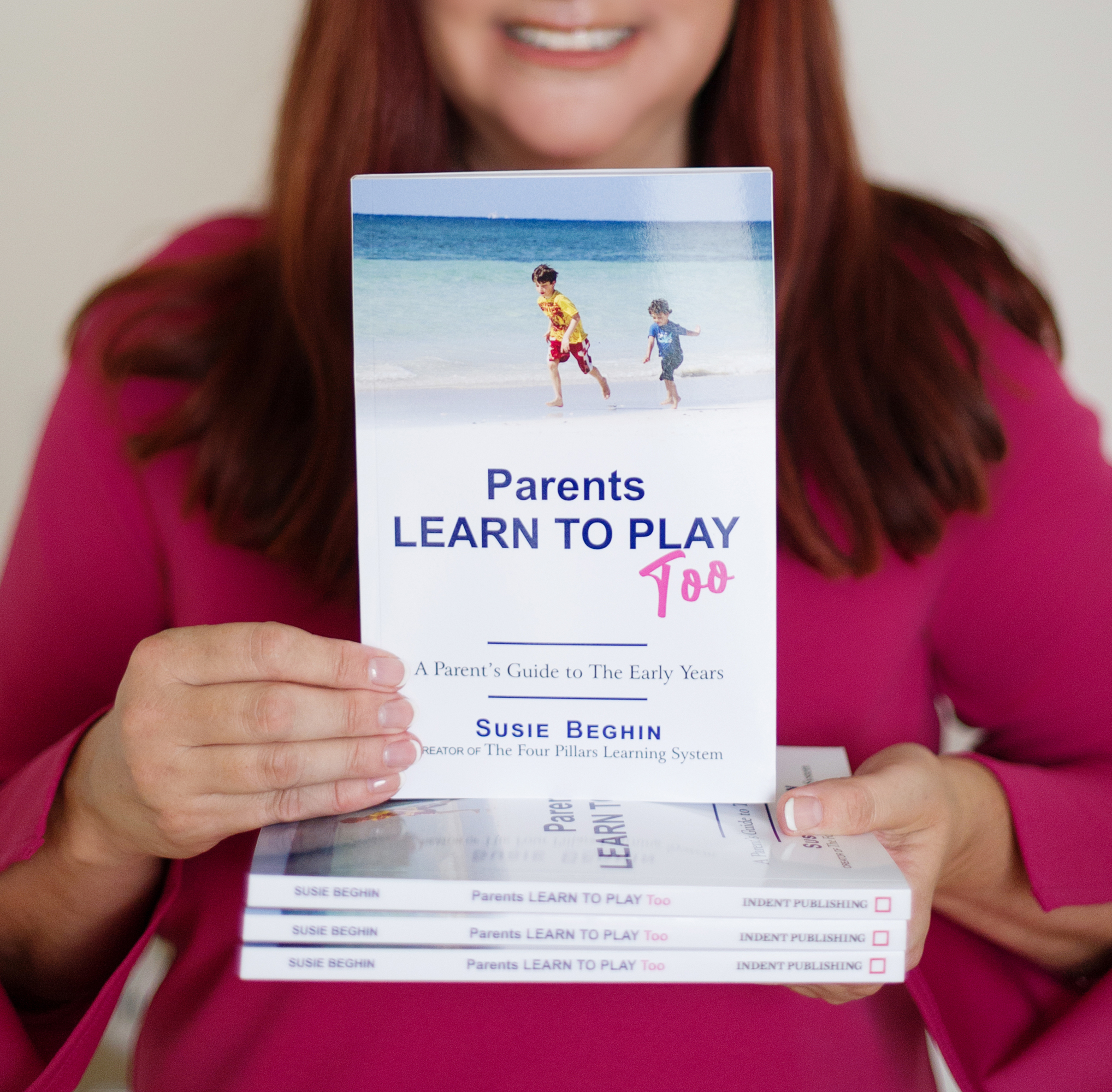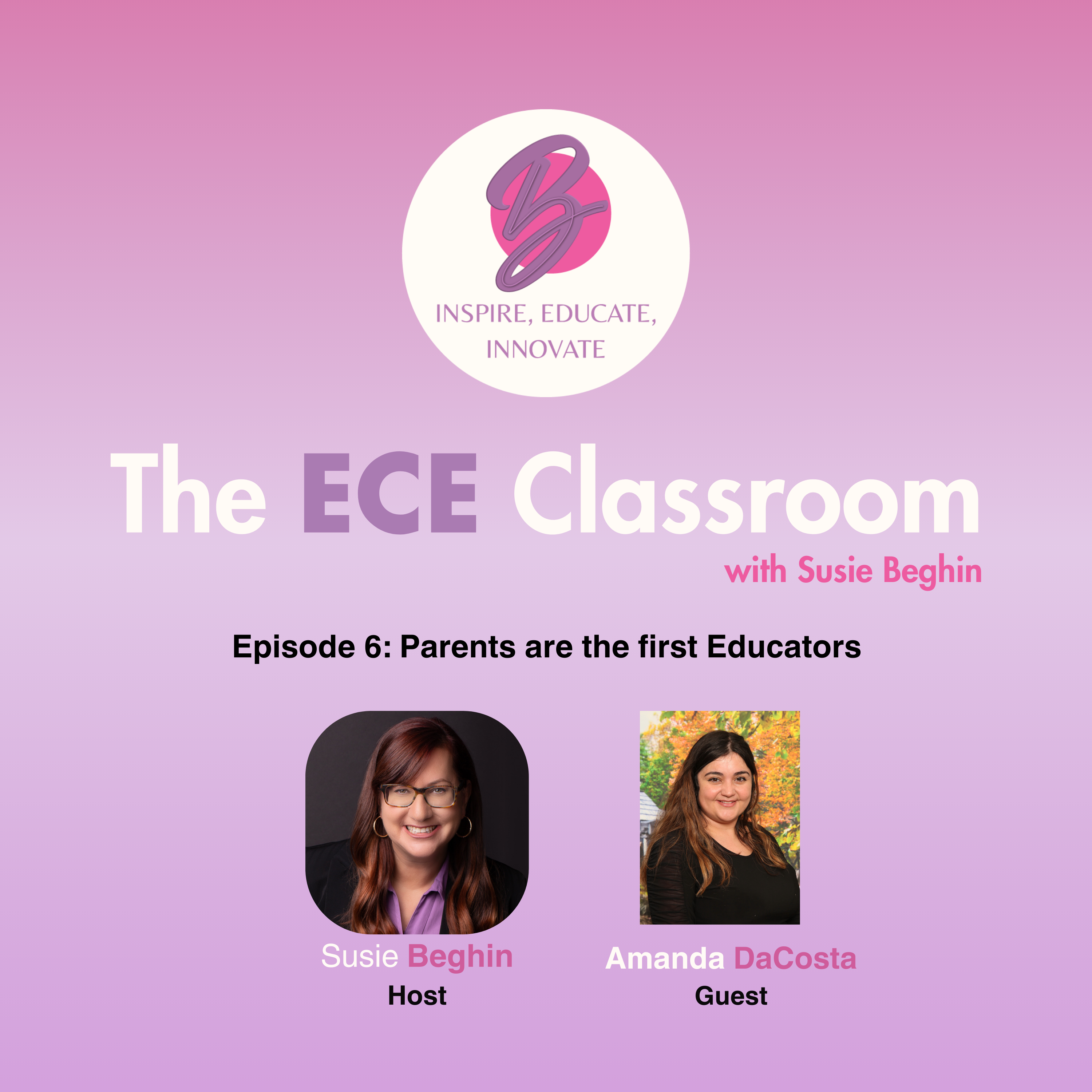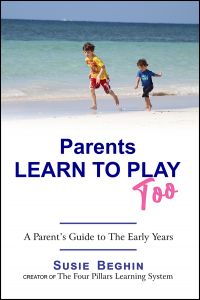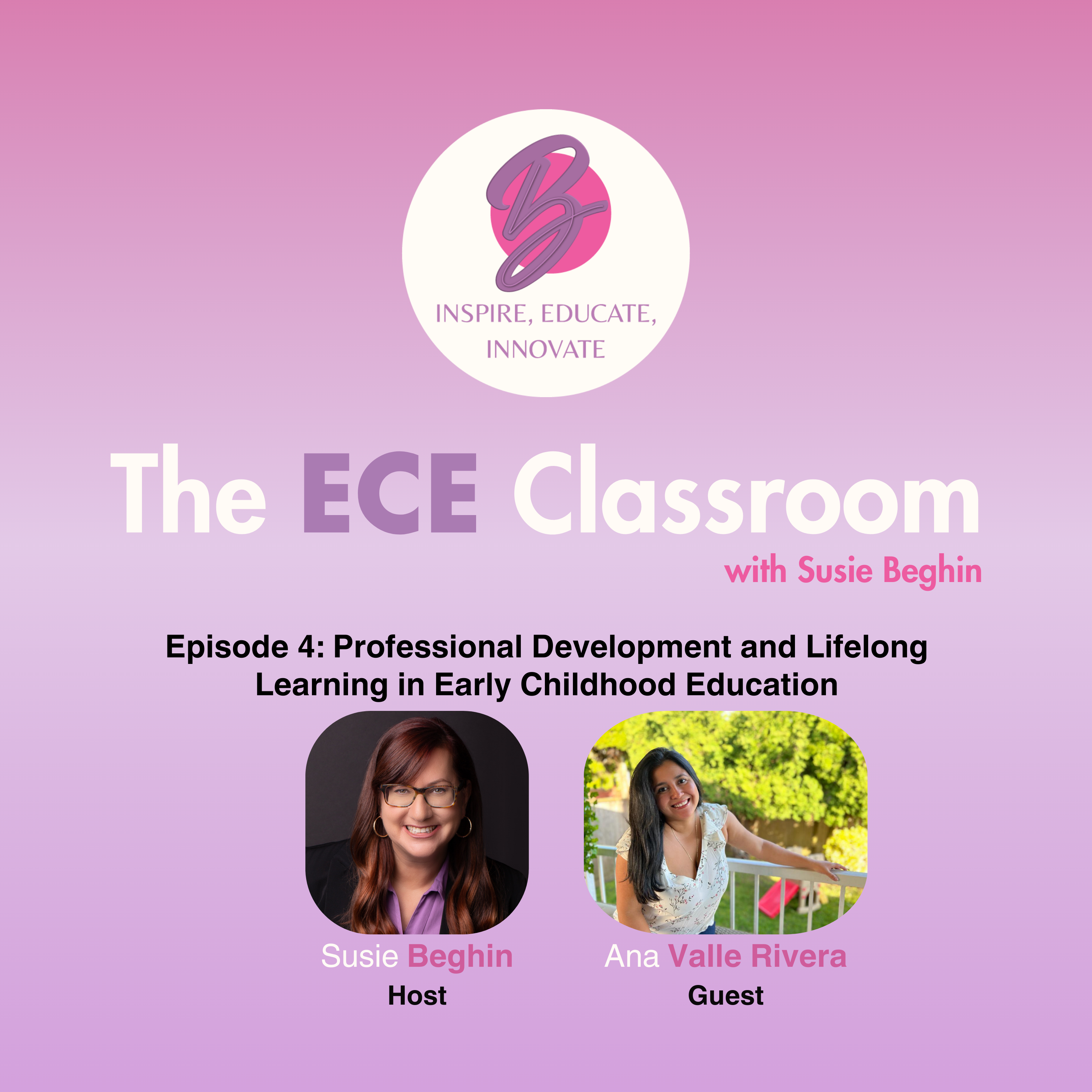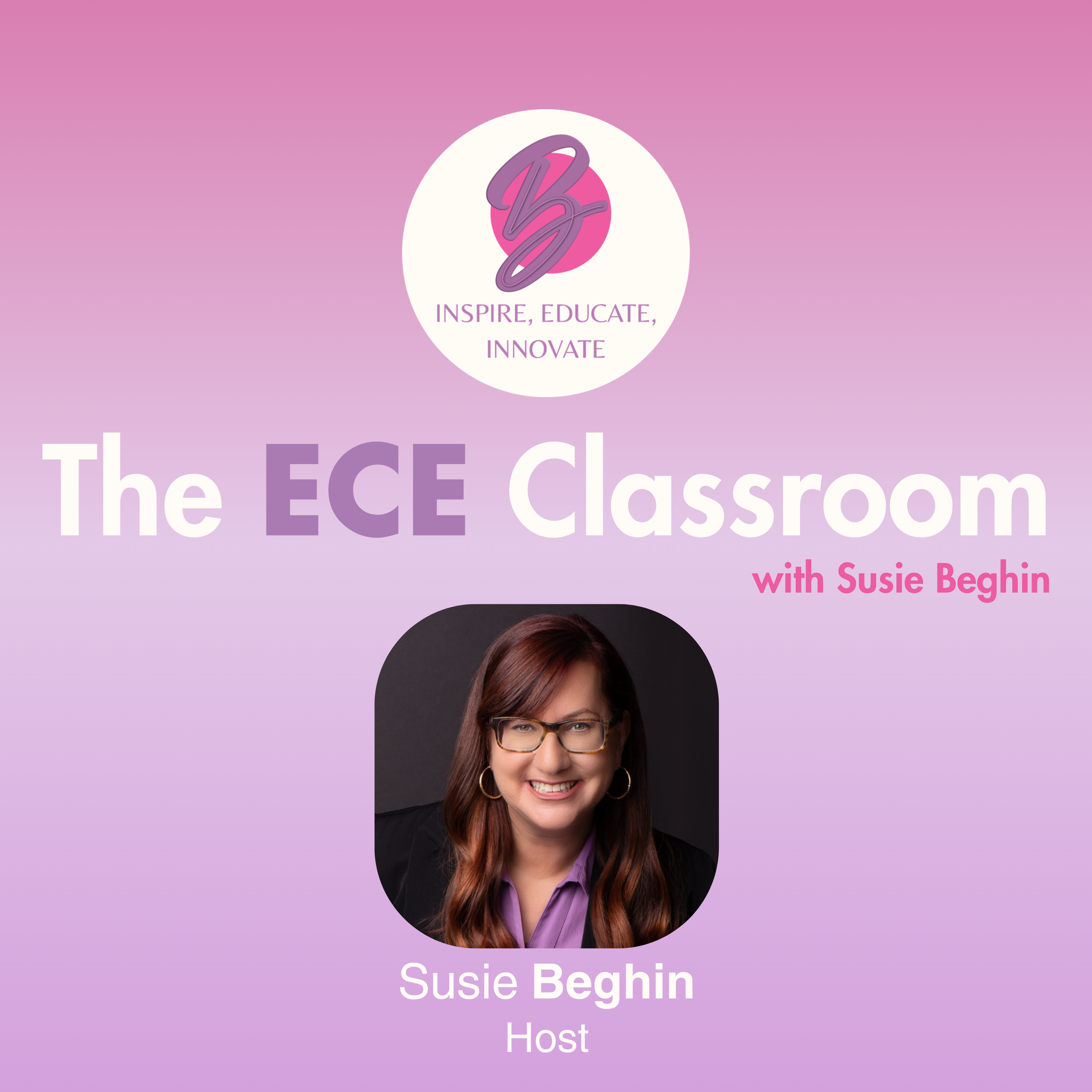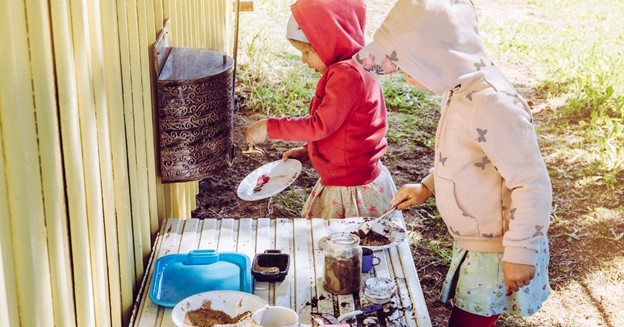Parenting Tips: The Power of Play
Unlocking Potential: The Power of Play in Parenting
by Susie Beghin, RECE, Founder of Alpha’s Discovery Kids
With so much on their plates these days, parents often find themselves juggling multiple responsibilities, leaving little time for meaningful interactions with their children. However, research shows that parental involvement is crucial for a child’s emotional and cognitive development. In this blog, we will explore how simple strategies can transform playtime into a powerful learning experience, even amidst the hustle and bustle of daily life. We’ll also address the growing concern of screen time and offer engaging alternatives that foster creativity and connection. Plus, don’t forget to check out my book, Parents Learn to Play Too, available on Amazon, for more insights and strategies!
Parent Involvement = Happy, Smart, Confident Kids; Simple Strategies for Impactful Playtime
When parents actively participate in their children’s play, it creates a nurturing environment where kids can thrive. Studies indicate that children with involved parents are happier, more intelligent, and more confident. Here are some simple strategies to maximize your playtime:
1. Be Present
Being physically present is essential, but emotional presence is equally important. Put away distractions like your phone or laptop. Engage in the activity at hand—whether it’s building blocks, playing dress-up, or drawing. Your undivided attention sends a powerful message: “You matter.”
2. Ask Open-Ended Questions
Encourage critical thinking and creativity by asking open-ended questions during play. Instead of simply asking, “How many cars do you have?” try asking, “What do you want to do with the cars?” This not only stimulates their imagination but also fosters problem-solving skills.
3. Incorporate Learning into Play
Transform everyday activities into learning opportunities. Cooking together? Talk about measurements and ingredients. Playing outside? Discuss the weather or observe nature. These subtle integrations of learning will enhance your child’s knowledge while making playtime fun.
4. Create Routines Around Play
Establishing a routine can make playtime a cherished part of your day. Whether it’s a dedicated hour after school or a weekend family game night, consistency helps children look forward to these moments and reinforces the importance of family bonding.
By implementing these strategies, you can create an enriching environment that promotes happiness, intelligence, and confidence in your children.
 No Extra Time to Play? No Problem; Make Every Moment a Learning Moment
No Extra Time to Play? No Problem; Make Every Moment a Learning Moment
Many parents feel overwhelmed by their busy schedules and believe they don’t have time for engaging activities with their kids. However, every moment presents an opportunity for learning! Here are some ways to incorporate educational experiences into your daily routine:
1. Utilize Commute Time
Whether you’re driving or taking public transport, turn your commute into an educational experience. Sing songs together in the car to encourage language development or count the number of white trucks you see. You can turn an ordinary drive into a fun math game.
2. Household Chores as Learning Opportunities
Involve your children in household chores while teaching them valuable life skills. Sorting laundry can become a lesson in colors and patterns; cooking can introduce math through measuring ingredients; cleaning can teach responsibility and teamwork.
3. Use Waiting Time Wisely
Whether you’re waiting at the doctor’s office or in line at the grocery store, use this time to engage with your child. Play simple games like “I Spy” or read books together to pass the time.
4. Bedtime Stories with a Twist
Instead of traditional bedtime stories, encourage your child to create their own tales using prompts or pictures from books you read together earlier in the day. This stimulates creativity while reinforcing literacy skills.
Remember, every moment spent together is an opportunity for growth and connection!
Too Much Screen Time? Let’s Fix That—with Engaging, Screen-Free Activities!
In an age dominated by screens, many children are spending excessive amounts of time on devices—often at the expense of physical activity and imaginative play. Here are some engaging, screen-free activities that will captivate your child’s attention:
1. Nature Scavenger Hunts
Go on a walk in nature and talk about what you see. Print out a list of nature items and try to find them.
2. Arts and Crafts
Set up a creative corner in your home with various supplies like paper, markers, glue, and recycled materials. Encourage your child to express themselves through art projects that can be displayed around the house.
3. DIY Science Experiments
Turn your kitchen into a science lab! Simple experiments like making play dough or baking soda volcanoes not only provide hands-on learning but also spark curiosity about how things work.
4. Building Forts
Utilize pillows, blankets, and furniture to create forts together! This activity promotes teamwork and imaginative play while providing a cozy space for reading or storytelling afterward.
By incorporating these screen-free activities into your routine, you can foster creativity and strengthen family bonds without relying on screens.
Parental involvement is key to raising happy, smart, and confident children. By embracing simple strategies during playtime and making every moment count—even amidst busy schedules—you can create lasting memories that enrich your child’s development.
For more insights and activity ideas on how to engage with your child through play effectively, be sure to check out my book Parents Learn to Play Too, available on Amazon! Together we can unlock the incredible potential within our children through the power of play!
Parents are The First Educators
Parents are The First Educators
by Susie Beghin, RECE, Founder of Alpha’s Discovery Kids
In the latest episode of my podcast, The ECE Classroom, I had the pleasure of interviewing Amanda DaCosta, a supervisor at Alpha’s Discovery Kids Preschool and Daycare. Our conversation was all about the importance of play in early childhood education and how parents can get involved to support their children’s learning and development. The insights Amanda shared are valuable for both educators and parents.
The Importance of Play
Play is not just a fun activity for children; it is a fundamental aspect of their learning and development. Research consistently shows that children learn best through play and in our discussion, Amanda emphasized that play is the best way to engage children in academics and other developmental milestones. It allows children to explore, create, and learn at their own pace. By understanding the significance of play, parents can better support their children’s growth and learning experiences.
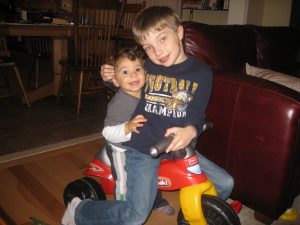
Parents as the First Educators
One of the key themes of our conversation was the recognition of parents as the first and best educators for their children. Amanda passionately stated, “Parents are the first, I think the best educator because they know the child best.” This perspective highlights the critical role parents play in shaping their child’s educational journey.
Parents often underestimate their influence on their child’s education. By being actively involved in their child’s play, parents can help reinforce concepts learned in preschool or daycare. For example, if a child is learning about colors, parents can incorporate color games during playtime at home. This not only solidifies the child’s learning but also strengthens the bond between parent and child.
Utilizing Everyday Household Items
Amanda shared practical tips on how parents can use everyday household items for play and learning. She encouraged parents to look around their homes for resources that can stimulate creativity and exploration. Simple items like cardboard boxes, kitchen utensils, and art supplies can become powerful tools for imaginative play. This approach not only makes learning accessible but also reinforces the idea that education can happen anywhere, not just in a classroom setting.
The Four Pillars of Learning
We also discussed the “four pillars of learning” that we believe are essential for child development:
- Language and Literacy: Encouraging reading and storytelling to enhance language skills. This can include reading aloud, discussing stories, and even creating their own stories together.
- STEAM: Integrating science, technology, engineering, arts, and mathematics into play to foster critical thinking. Simple experiments, building projects, and artistic activities can spark a child’s interest in these areas.
- Physical Activity and Nutrition: Promoting healthy habits through active play and nutritious meals. Physical activity is crucial for developing motor skills and overall health, while nutrition plays a key role in cognitive development.
- Mindful Awareness: Teaching children to be present and aware of their feelings and surroundings. Mindfulness activities can help children manage their emotions and develop a sense of empathy towards others.
These pillars serve as a framework for parents and educators to create enriching experiences that support holistic development. By focusing on these areas, parents can ensure that they are nurturing well-rounded individuals who are prepared for future challenges.
The Importance of Communication
Another vital aspect we explored was the importance of communication between educators and parents. Amanda stressed that effective communication is crucial in demonstrating the value of play-based learning. By sharing insights, resources, and strategies, educators can empower parents to engage in their children’s learning journeys. Regular updates and workshops can help parents understand the significance of play in their child’s development, fostering a collaborative approach to education.
“Parents Learn to Play Too” Book
We also spoke about my book being released on Sept 15th, Parents Learn to Play Too, which serves as a guide for parents looking to incorporate play into their daily routines. This resource offers a variety of activities and tips that can easily be integrated into family life, making it an invaluable tool for fostering learning through play.
Favorite Activities for Parents and Children
As we wrapped up the episode, I reflected on just how much play impacts early childhood education. Amanda and I agreed that empathy, communication, and creativity are key to fostering a love of learning. Our conversation left me feeling inspired and excited to share these insights with listeners. It’s a powerful reminder of the critical role parents play in their child’s education, and how play is the foundation for learning.
Stay tuned for more insightful discussions on early childhood education, parenting, and educator empowerment. Let’s continue to learn, grow, and make a difference in the lives of our students every day.
You can listen to the podcast on your favorite podcast platform, or by clicking here: https://open.spotify.com/show/7Hg7rTtRQggsVSCbbOdvP2?si=paCEPiCRRGK7yOfrTTsh8Q
The ECE Classroom – Recap of Episode 4 – Lifelong Learning and Professional Development
The ECE Classroom – Recap of Episode 4 – Lifelong Learning and Professional Development
by Susie Beghin, RECE, Founder of Alpha’s Discovery Kids
“Lifelong learning isn’t just a buzzword; it’s essential for our growth and effectiveness as educators.”
In the latest episode of my podcast, The ECE Classroom, I had the honor of discussing the importance of lifelong learning and professional development for early childhood educators with Anna Valle Rivera. The conversation was insightful and inspiring, emphasizing the crucial role continuous education plays in our professional lives and the impact it has on the children we teach.
The Importance of Lifelong Learning
Lifelong learning is an ongoing process that allows educators to stay updated with the latest teaching strategies, tools, and research. It’s about more than just attending workshops and seminars; it’s a commitment to personal and professional growth. By engaging in lifelong learning, educators can enhance their teaching practices, adapt to new challenges and meet the diverse needs of their students.
In this episode, we explored various aspects of lifelong learning, including the benefits it brings to educators and students alike. Continuous education helps teachers to stay current with educational trends, understand new research findings, and apply innovative strategies in their classrooms. This leads to more effective teaching and better learning outcomes for children.
Professional Development: Empowering Educators
Professional development is a key component of lifelong learning. It involves activities and programs designed to enhance the knowledge, skills and competencies of educators. Through professional development, teachers can gain new insights, refine their teaching methods and build their confidence.
We discussed different forms of professional development, such as attending workshops and conferences, participating in webinars and engaging in reflective practice. These opportunities provide educators with the tools they need to continually improve their practice, share experiences and stay motivated.
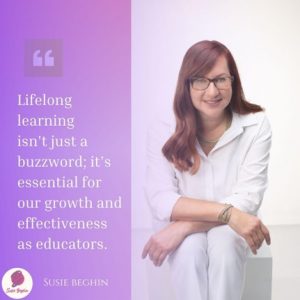
Practical Tips for Embracing Lifelong Learning
During the episode, I shared practical tips on how educators can embrace lifelong learning and make it a part of their daily lives:
- Attend Workshops and Webinars: Participate in local and online workshops and webinars to learn about the latest trends and strategies in early childhood education.
- Engage in Reflective Practice: Take time to reflect on your teaching experiences, identify areas for improvement and set goals for your professional growth.
- Join Professional Networks: Connect with other educators through professional organizations and online communities. These networks provide valuable resources, support and opportunities for collaboration.
- Read Educational Literature: Stay informed by reading books, journals and articles on early childhood education. This helps you keep up with new research and best practices.
- Pursue Advanced Degrees or Certifications: Consider furthering your education through advanced degrees or specialized certifications. This not only enhances your knowledge but also opens up new career opportunities.
The Impact on Children
The benefits of lifelong learning and professional development extend beyond educators. When teachers are well-informed and skilled, they can create richer, more engaging learning environments for their students. This leads to better educational experiences and outcomes for children.
Engaged and motivated educators are more likely to implement innovative practices, use effective teaching strategies and create a positive classroom atmosphere. This fosters a love of learning in children and supports their overall development. By continuously improving their practice, educators can better meet the individual needs of each child and help them reach their full potential.
Takeaways from the Episode
- Lifelong learning is vital for the growth and effectiveness of early childhood educators.
- Professional development empowers teachers to stay updated with the latest educational trends and strategies.
- Practical tips for embracing lifelong learning include attending workshops, engaging in reflective practice, and joining professional networks.
- The benefits of lifelong learning and professional development extend to children, leading to better educational experiences and outcomes.
You can learn more about Anna and her work at @earlyyearsthriving.
Stay tuned for more insightful discussions on early childhood education, parenting, and educator empowerment. Let’s continue to learn, grow, and make a difference in the lives of our students every day.
You can listen to the podcast on your favorite podcast platform, or by clicking here: https://open.spotify.com/show/7Hg7rTtRQggsVSCbbOdvP2?si=paCEPiCRRGK7yOfrTTsh8Q
Building Resilience in Young Children: Helping Them Navigate Challenges and Setbacks
Building Resilience in Young Children: Helping Them Navigate Challenges and Setbacks
by Susie Beghin, RECE, Founder of Alpha’s Discovery Kids
At Alpha’s Discovery Kids, we believe that resilience is a cornerstone of healthy development. Resilience is the ability to bounce back from setbacks, adapt to change, and keep going in the face of adversity. Developing this vital skill early in life helps children navigate the inevitable challenges and setbacks they will encounter. As parents and educators, we play a crucial role in helping children develop the resilience they need to thrive. By fostering resilience in young children, we equip them with the skills to handle stress, overcome obstacles, and maintain a positive outlook even when things get tough. This foundation is essential for their overall well-being and success in life.
Here are a few ideas and strategies for building resilience in young children, ensuring they are prepared to face life’s challenges with confidence and determination.
- Foster a Secure Attachment
A secure attachment between a child and their caregivers forms the foundation for resilience. When children feel safe, loved, and supported, they are more likely to explore their environment and take healthy risks. Consistent, responsive caregiving helps children develop trust and a sense of security.
- Encourage Independence and Problem-Solving
Allowing children to solve problems on their own encourages independence and critical thinking. When children face challenges, guide them through the problem-solving process rather than providing immediate solutions. Ask open-ended questions that prompt them to think about different strategies and potential outcomes. This approach not only builds problem-solving skills but also fosters a sense of competence and confidence.

- Model Resilient Behavior
Children learn by observing the adults around them. Model resilient behavior by demonstrating how to handle stress, setbacks, and disappointment in a positive and constructive manner. Share stories about times when you faced challenges and how you overcame them. By showing children that it is normal to experience difficulties and that they can be managed, you help them develop a resilient mindset.
4. Promote a Growth Mindset
A growth mindset is the belief that abilities and intelligence can be developed through effort and persistence. Encourage children to view challenges as opportunities for learning and growth rather than as threats to their self-esteem. Praise their efforts rather than just their achievements. This helps children understand that their abilities can improve with practice and dedication, making them more likely to persist in the face of difficulties.
5. Teach Emotional Regulation
Helping children understand and manage their emotions is crucial for resilience. Teach them to recognize and name their feelings, and provide them with strategies to cope with negative emotions, such as deep breathing, counting to ten, or taking a break.
- Create Opportunities for Mastery
Providing children with opportunities to succeed and master new skills builds their confidence and resilience. Set achievable goals and celebrate their successes, no matter how small. This sense of accomplishment reinforces the belief that they can overcome challenges and achieve their goals through effort and perseverance.
7. Encourage Positive Relationships
Strong social connections are a key component of resilience. Encourage children to build positive relationships with their peers, teachers, and family members. Teach them the importance of empathy, kindness, and cooperation.
- Establish Consistent Routines
Routines provide a sense of stability and predictability, which is particularly important for young children. Consistent routines help children feel secure and understand what to expect, making it easier for them to cope with changes and challenges. Ensure that routines are flexible enough to accommodate the child’s needs while providing a structured environment that supports their growth and development.
- Encourage Healthy Risk-Taking
Allow children to take age-appropriate risks and learn from their experiences. Whether it’s climbing a new piece of playground equipment, trying a new activity, or making a new friend, healthy risk-taking helps children build confidence and resilience.
- Promote Mindfulness and Relaxation
Mindfulness and relaxation techniques can help children manage stress and build resilience. Teach them simple mindfulness exercises, such as deep breathing, guided imagery, or progressive muscle relaxation. These practices can help children stay calm and focused, even in challenging situations.
Building resilience in young children is a vital part of helping them navigate the challenges and setbacks they will face throughout their lives. At Alpha’s Discovery Kids, we are committed to creating a nurturing environment that supports the development of resilient, confident, and capable children. By fostering secure attachments, encouraging independence, modeling resilient behavior, promoting a growth mindset, and teaching emotional regulation, we can help children build the skills they need to thrive. Through positive relationships, consistent routines, healthy risk-taking, and mindfulness practices, we equip them with the tools they need to face life’s challenges with confidence and resilience.
Mindful Parenting: Promoting Calmness, Patience, and Connection with Your Children
Mindful Parenting: Promoting Calmness, Patience, and Connection with Your Children
by Susie Beghin, RECE, Founder of Alpha’s Discovery Kids
Have you ever spent hours scouring the internet for parenting tips, seeking solutions to the daily challenges and uncertainties you face? Parenting can often feel like an overwhelming task filled with constant demands and pressures. As a mother and an Early Childhood Education (ECE) educator, I empathize with these pressures firsthand. That’s why I believe mindfulness is so crucial, not only for children but also for us adults. From my conversations with many parents, I know that mindful parenting, which integrates calmness, patience, and a deep connection with our children, is of utmost importance.
Mindful parenting involves being fully present and engaged with your children, fostering a deep sense of awareness and connection. It’s about slowing down, appreciating the moment, and responding to your child’s needs with empathy and understanding. Mindfulness in parenting helps create a supportive environment where children feel valued, heard, and loved. This approach not only benefits the children but also promotes the well-being of parents, reducing stress and enhancing the overall family dynamic.
In this blog, I’ll share some tips that I hope you find helpful in incorporating mindful parenting into your daily life. These tips are designed to help you nurture calmness, patience, and a stronger connection with your children, fostering a positive and supportive family environment.

Tips to Promote Calmness
- Practice Self-Care: Before you can be present for your children, it’s crucial to take care of yourself. Ensure you are getting enough rest, eating well, and engaging in activities that rejuvenate you. Self-care isn’t selfish; it’s necessary for maintaining your well-being and being the best parent you can be.
- Breathing Exercises: Simple breathing exercises can help both you and your children manage stress and stay calm. Practice deep breathing techniques together, especially during moments of tension. Inhale deeply through the nose, hold for a few seconds, and exhale slowly through the mouth.
- Create a Calm Environment: Your home environment significantly affects your family’s mood and behavior. Keep your living space organized and clutter-free to create a sense of tranquility. Soft lighting, calming music, and incorporating natural elements can also contribute to a peaceful atmosphere.
Tips to Promote Patience
- Practice Mindfulness Meditation: Regular mindfulness meditation can help you develop greater patience. It trains your mind to stay focused on the present moment and reduces impulsive reactions. Even a few minutes of meditation each day can make a significant difference.
- Empathize with Your Child: When your child is acting out, try to see the situation from their perspective. Understanding their feelings and frustrations can help you respond with empathy rather than impatience. Remember, children are still learning how to navigate their emotions and the world around them.
- Set Realistic Expectations: Recognize that children are still developing their skills and may not always meet your expectations. Adjusting your expectations to their developmental level can reduce frustration and help you respond more patiently.
Tips to Promote Connection
- Engage in Shared Activities: Spend quality time with your children doing activities they enjoy. This could be reading together, playing games, or simply talking. Shared activities foster a strong bond and show your children that you value spending time with them.
- Listen Actively: Active listening involves giving your full attention to your child when they speak. Make eye contact, nod, and respond appropriately to show that you are engaged in the conversation. This practice helps your child feel heard and understood.
- Express Love and Appreciation: Regularly express your love and appreciation for your children. Positive affirmations, hugs, and kind words go a long way in building a strong emotional connection. Let your children know that they are loved unconditionally.
Mindful parenting is a journey that requires practice and patience, but the rewards are profound. By incorporating mindfulness into your parenting approach, you can promote calmness, patience, and a deep connection with your children. Remember to take care of yourself, practice empathy, and engage in meaningful activities with your children. These practices will help create a supportive and loving environment where your children can thrive.
For more insights and practical tips on fostering your child’s development through play and mindfulness, I invite you to explore my book, Learn to Play. It’s a comprehensive guide designed to help parents and educators provide the best start in life for their children.
By adopting these mindful practices, we can transform our parenting approach, ensuring that we raise happy, healthy, and well-rounded children.
Navigating the Transition: Helping an Older Sibling Adjust to a New Baby
Navigating the Transition: Helping an Older Sibling Adjust to a New Baby
by Susie Beghin, RECE, Founder of Alpha’s Discovery Kids
As both a mom and an early childhood educator, I understand the challenges families face when welcoming a new baby into the home. The arrival of a new sibling can be an exciting yet challenging time for older children, especially when it comes to adjusting to the changes in their daily routine and family dynamics. At Alpha’s Discovery Kids, we’re committed to supporting families at every stage of their journey, providing guidance and assistance to help children and parents navigate this transition with ease.
It’s not uncommon for children to experience a range of emotions during this time, and these feelings often manifest in their behavior at daycare. From regression in previously mastered skills to attention-seeking behaviors and separation anxiety, the changes happening at home can significantly affect a child’s behaviour and well-being in the daycare environment.
Here are five common observations we see in the daycare setting:
1.Child Regression in Skills:
- Children may regress in skills they’ve previously mastered. For example, a child who was once independent at nap time may suddenly need more help falling asleep.
2. Attention-Seeking Behavior:
- Some children may exhibit attention-seeking behavior in negative ways, such as whining, hitting, or biting, to garner more attention.
3. Separation Anxiety:
- Older siblings may experience strong separation anxiety at drop-off time, even if they’ve previously adjusted well to daycare.
4. Reluctance to Attend Daycare:
- Children may express a desire to stay at home with the parent rather than attending daycare.
5. Engagement in “Baby Talk”:
- Children may revert to “baby talk” even if they can speak in full sentences.

It’s crucial for parents to communicate these changes with their daycare teachers. Understanding the child’s situation at home enables us to provide the best support and assistance at daycare.
Here are some strategies you can try to help children adjust to the change:
Acknowledge the Child’s Feelings:
- Validating the child’s emotions is crucial. Let them know that it’s okay to feel sad, mad, or jealous about the new addition to the family. For example, you might say, “It’s hard to be a big sister! You sometimes feel sad or mad that mom and dad are busy with your little brother.”
Acknowledge Good Behavior:
- Children often seek attention, even if it’s negative. Instead of focusing on negative behavior, emphasize and praise positive behavior. For instance, you might say, “I like how you helped your little brother with his bath this morning,” or “I appreciate how you waited patiently for me to finish talking on the phone before you came to ask me something.” Specific praise encourages the child to repeat desirable behavior.
Avoid Making Big Changes:
- It’s advisable to avoid making other significant changes during this time. For instance, hold off on starting potty training or weaning. Minimizing changes can help the child adjust more smoothly.
Continue Treating the Child According to Their Age and Skill Level:
- If you notice regression in the child’s behavior, it’s essential to continue treating them according to their age and skill level. Offer opportunities for age-appropriate activities to help them build and maintain their skills.
With patience, understanding, and support, both parents and children can navigate this transition successfully. Enjoy this special time by spending extra one-on-one time with each other as well as quality time together as a family!
For video content on this topic and similar early childhood topics, visit our YouTube channel.
The ECE Classroom – New Podcast for early childhood educators
The ECE Classroom with Susie Beghin
by Susie Beghin, RECE, Founder of Alpha’s Discovery Kids
“Educators are the lifeblood of the early child care system.” – Susie Beghin
I am thrilled and excited to announce the launch of my brand new podcast, ‘The ECE Classroom with Susie Beghin.’ Dedicated to exploring key topics in early childhood education, each episode offers insightful discussions and practical advice and is designed to inspire, inform, and empower educators, home care providers, and parents alike. With my background in early childhood education and daycare ownership, I am passionate about nurturing young minds and supporting those who work tirelessly to shape the future generation.
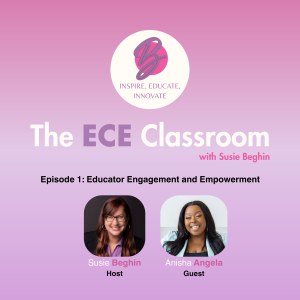
In our inaugural episode, I am delighted to welcome Anisha Angela as our guest speaker. Anisha is an Early Childhood Education (ECE) coach and expert with over 14+ years of experience in the field. Her extensive background includes leadership roles in childcare programs, teaching positions at college programs, and overseeing multiple childcare locations as a senior manager.
As the CEO and Founder of “The Early Childhood Coach + Co,” Anisha is committed to supporting the success of fellow ECE professionals through consulting, coaching, and training. With her wealth of knowledge and experience, Anisha shares invaluable insights into the current challenges facing educators, including burnout and stress, and offers practical tips for reigniting the spark within the classroom.
We hope you’ll join us on this journey of learning and growth as we strive to support and uplift the early childhood education community.
Listen to the podcast here: https://spotifyanchor-web.app.link/e/OPl10EGzNIb
Connect with Anisha on her social channels to stay updated on her insights and upcoming events:
Instagram: @anisha.theecc
Facebook: @AnishaAngella.co
Twitter: AnishaAngella.co (@AnishaAngella)
Youtube: Anisha Angella
Website: www.anishaangellabooks.ca
General Email: info@anishaangellabooks.ca
Spring Adventures for Kids: Exploring Nature
Spring Adventures for Kids: Exploring Nature
by Susie Beghin, RECE, Founder of Alpha’s Discovery Kids
As spring blooms and nature comes to life, it’s the perfect time to engage children in outdoor activities that foster their curiosity and creativity. At Alpha’s Discovery Kids, we’re passionate about providing children with enriching experiences that ignite their love for learning and exploration. From nature walks to mud kitchens, there are endless opportunities for kids to connect with the natural world and unleash their imagination.
Nature walks are a favourite among children and educators alike and are an excellent way to connect children with the natural world while encouraging physical activity and curiosity. During these walks, children have the chance to explore various environments, from wooded trails to open fields, collecting treasures along the way.

Encouraging children to collect items such as pine cones, stones, leaves, and twigs not only sparks their curiosity but also provides materials for creative projects. These collected treasures can be used in art projects, where children can create nature-inspired collages, paintings, or sculptures, fostering their artistic expression and appreciation for the beauty of the natural world. Picking up sticks, in particular, seems to captivate children’s attention as they experiment with different sizes and shapes, imagining them as wands, swords, or tools for building.
Parents can also join in on the fun by taking their children on nature walks in local parks or trails. Equipped with a bag to gather their findings, children delight in the opportunity to explore the great outdoors and discover the beauty of nature firsthand. Nature walks also offer opportunities for hands-on learning experiences. Children can observe different plant and animal species, learning about their habitats, behaviours, and life cycles. Parents can also engage children in discussions about the importance of conservation and caring for the environment, instilling in them a sense of responsibility towards the planet.
Another highlight of outdoor play is the mud kitchen, a beloved feature that encourages imaginative play, sensory exploration and hands-on learning. With simple setups consisting of tables or flat surfaces, pots, pans, and utensils, mud kitchens provide children with endless opportunities to cook, bake, and create. As children mix, pour, and stir ingredients in their mud kitchens to concoct “delicious” meals and potions, children engage in open-ended play that fosters language development, motor skills, and social interaction.
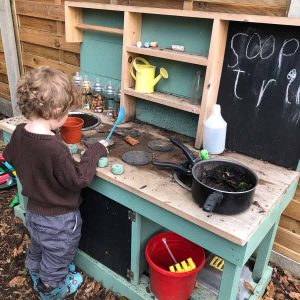
Mud kitchens have benefits beyond imaginative play. As children engage in sensory activities, they explore different textures, smells, and consistencies, enhancing their sensory processing skills. Mixing and stirring promotes hand-eye coordination and strengthens hand muscles, laying the foundation for writing and other fine motor tasks. The sensory experience of squishing mud between their fingers and the freedom to experiment with different textures and consistencies stimulates their senses and ignites their creativity. And, the outdoor setting provides children with the opportunity to engage in physical activity, promoting gross motor skills and overall well-being.
Additionally, mud kitchens offer rich learning experiences that integrate various academic disciplines including our 4 Pillars of Learning. Children naturally engage in scientific inquiry as they observe changes in materials and explore cause-and-effect relationships. Children can integrate elements of mathematics by counting, sorting, and categorizing natural materials or measuring quantities for their concoctions. They also exercise their creativity and artistic skills as they experiment with different combinations and designs, transforming mud and natural materials into works of art.
Whether exploring the wonders of nature on a walk or whipping up culinary delights in the mud kitchen, springtime offers abundant opportunities for children to learn, grow, and connect with the world around them. By embracing outdoor play and nature-based activities, we cultivate a sense of wonder and curiosity that will inspire children to explore and discover throughout their lives.
For more information, visit our YouTube channel for inspiration and ideas.
Parenting in the Digital Age: Screen Time
Parenting in the Digital Age: Screen Time
by Susie Beghin, RECE, Founder of Alpha’s Discovery Kids
Parenting in the digital age can feel like navigating uncharted territory. As a parent and the owner of Alpha’s Discovery Kids, I am acutely aware of the complexities involved in raising children in an era dominated by technology. In our rapidly evolving world, where digital devices are part of our everyday lives, finding the right balance between harnessing the benefits of technology and safeguarding against its potential drawbacks is crucial. At Alpha’s Discovery Kids, we prioritize creating an environment where children can thrive emotionally, socially, and intellectually while also recognizing the role that technology plays in their lives. Striking this balance is essential as we help guide children through their formative years.
One of the most pressing concerns for parents is managing screen time limits. With smartphones, tablets, and other digital devices becoming increasingly prevalent, children are spending more time than ever in front of screens. This is why it’s so important to focus on creating a balance between embracing technology for educational purposes and ensuring children have ample opportunities for real-world experiences and interactions. After all, children learn best through play so we want to make sure we are encouraging them to participate in activities such as outdoor play, social interactions and creativity.

Quality of content is another major consideration for parents navigating the digital landscape. With countless apps, games, and digital platforms available to children, it’s essential to curate content that is not only entertaining but also enriching, age-appropriate, and safe. Parents must discern between educational content that fosters learning and critical thinking skills and potentially harmful or addictive material. It’s equally important to make sure that the digital content aligns with family values and educational goals – just one more layer of complexity to the decision-making process!
The impact of technology on children’s social and physical development also cannot be overlooked. Excessive screen time has been linked to a sedentary lifestyle, which can contribute to a decline in physical activity and overall well-being. Additionally, prolonged use of digital devices can sometimes replace face-to-face interactions, affecting children’s social skills and emotional development.
Despite these challenges, we believe that technology can be a valuable tool when used appropriately. At Alpha’s Discovery Kids, we incorporate technology into our curriculum in a way that enhances learning experiences and fosters creativity, striving to provide children with opportunities to engage with technology in meaningful ways.
We also encourage open communication about technology. By discussing the benefits and potential drawbacks of technology with children, parents can help them develop healthy digital habits and make informed choices about their screen usage.
Ultimately, parenting in the digital age requires a thoughtful and proactive approach. By creating a balance between technology and real-world experiences, setting clear guidelines for screen time, and fostering open communication, parents can help their children navigate the digital world safely and confidently. At Alpha’s Discovery Kids, we are committed to supporting parents in this journey and providing children with the tools they need to thrive in today’s digital age.
For more information on early childhood topics, follow Susie Beghin’s YouTube channel where she delves deeper into these topics.
Fostering Early Literacy: Strategies to Inspire a Love of Reading
Fostering Early Literacy: Strategies to Inspire a Love of Reading
by Susie Beghin, RECE, Founder of Alpha’s Discovery Kids
Did you know that the foundation for a lifelong love of reading is laid in the earliest years of childhood?
As an Early Childhood Educator and a mother, I am deeply passionate about fostering a love for reading from an early age. At Alpha’s Discovery Kids, we are always exploring natural ways to incorporate language and literacy into our play-based approach to learning. After all, research indicates that the peak ability to learn occurs between the ages of 0 to 6 years, so building strong literacy skills in the early years is crucial for a child’s overall development. The key is incorporating various strategies to make learning enjoyable and effective.
Teaching literacy through free play is one of the most effective ways to engage children and foster a love for reading, and something we do every day at Alphas Discovery Kids! By creating a “print-rich” environment, we surround children with written words and labels that correspond to everyday objects. For example, labeling items with both a picture and written word helps children make associations between the spoken word and its written form. Whenever we engage with these labeled items during work time, we point out the written word, reinforcing the connection between spoken language and print.

In addition to labeling, we use Jolly Phonics songs as a fun and engaging way to develop associations between letter sounds and letter names. Singing alphabet songs or rhymes helps children become familiar with the sounds of letters while providing a memorable and enjoyable experience.
When it comes to reading books, we believe in making the experience interactive and engaging. Instead of simply reading aloud, we encourage children to participate by asking them questions about the story and what they think will happen next. This not only promotes critical thinking skills but also encourages children to actively engage with the text and develop comprehension skills.
We can also empower children to tell their own stories by interpreting pictures on a page or creating their own narratives based on the illustrations. This encourages creativity and imagination while also strengthening language and storytelling abilities.
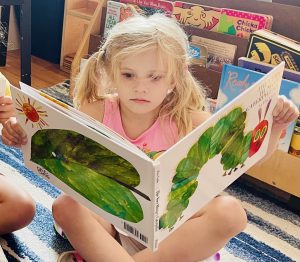 Intentional literacy activities can be tailored to suit children at different stages of development. For infants, daily read-aloud sessions provide valuable opportunities for brain development and foster a sense of curiosity about the world. As children transition into the toddler stage, tactile activities such as using alphabet magnets or drawing letters in sand help introduce them to the alphabet in a hands-on way. A quick tip is to start with 5 to 7 letters and gradually add more as children learn. This ensures that they can build upon their knowledge at a pace that suits them.
Intentional literacy activities can be tailored to suit children at different stages of development. For infants, daily read-aloud sessions provide valuable opportunities for brain development and foster a sense of curiosity about the world. As children transition into the toddler stage, tactile activities such as using alphabet magnets or drawing letters in sand help introduce them to the alphabet in a hands-on way. A quick tip is to start with 5 to 7 letters and gradually add more as children learn. This ensures that they can build upon their knowledge at a pace that suits them.
For preschoolers, we introduce the alphabet scavenger hunt as a fun and interactive way to reinforce letter recognition and early literacy skills. Children are encouraged to search for objects that begin with specific letters, promoting active engagement and exploration while strengthening their understanding of the alphabet.
By incorporating these strategies into our curriculum at Alpha’s Discovery Kids, we aim to instill a lifelong love for reading and learning in children from a young age. By making literacy fun, interactive, and accessible, we empower children to become confident and enthusiastic readers, setting them up for success in school and beyond.
For more information about this and other early childhood education topics, check out our YouTube videos.

